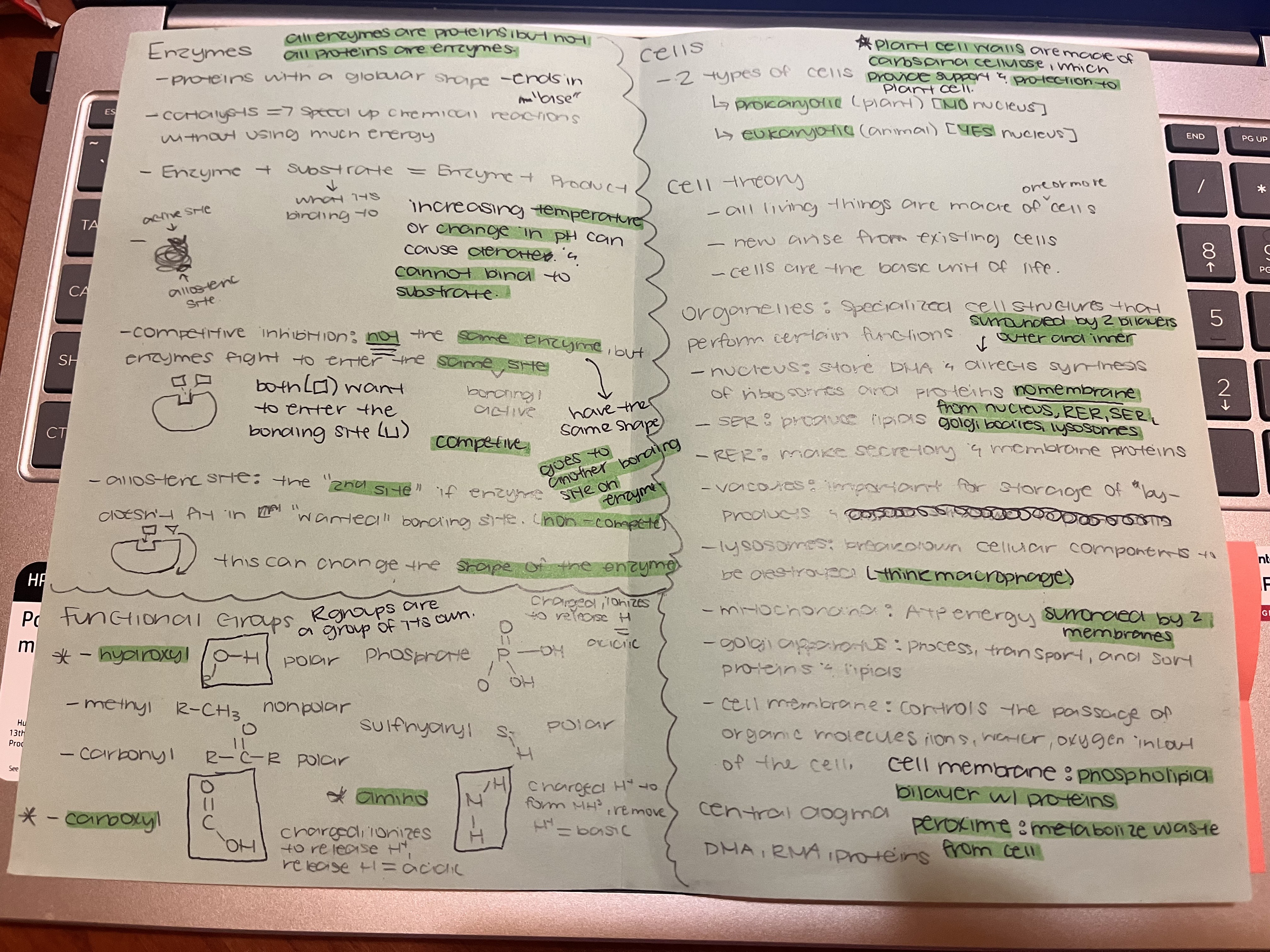What are enzymes and their functions in cells, and what are the different types of cells and their structures?

Understand the Problem
The question relates to concepts in biology, specifically related to cells, enzymes, and functional groups in molecular biology. It seems to summarize major topics of study, such as cell types, enzyme functions, and cellular structures.
Answer
Enzymes speed up reactions; cells are prokaryotic or eukaryotic.
Enzymes are proteins that speed up chemical reactions in cells. They work by lowering the activation energy needed for reactions. Cells can be prokaryotic (simple, no nucleus) or eukaryotic (complex, with a nucleus).
Answer for screen readers
Enzymes are proteins that speed up chemical reactions in cells. They work by lowering the activation energy needed for reactions. Cells can be prokaryotic (simple, no nucleus) or eukaryotic (complex, with a nucleus).
More Information
Enzymes are crucial for processes like digestion. Prokaryotic cells, like bacteria, lack a defined nucleus, while eukaryotic cells, such as plant and animal cells, have a nucleus and other membrane-bound organelles.
Tips
A common mistake is confusing prokaryotic and eukaryotic cells. Remember that 'pro-' means 'before' a nucleus, and 'eu-' means 'true' nucleus.
Sources
- Enzymes: Function, definition, and examples - MedicalNewsToday - medicalnewstoday.com
- Enzymes - Structure, Classification, and Function - BYJU'S - byjus.com
AI-generated content may contain errors. Please verify critical information